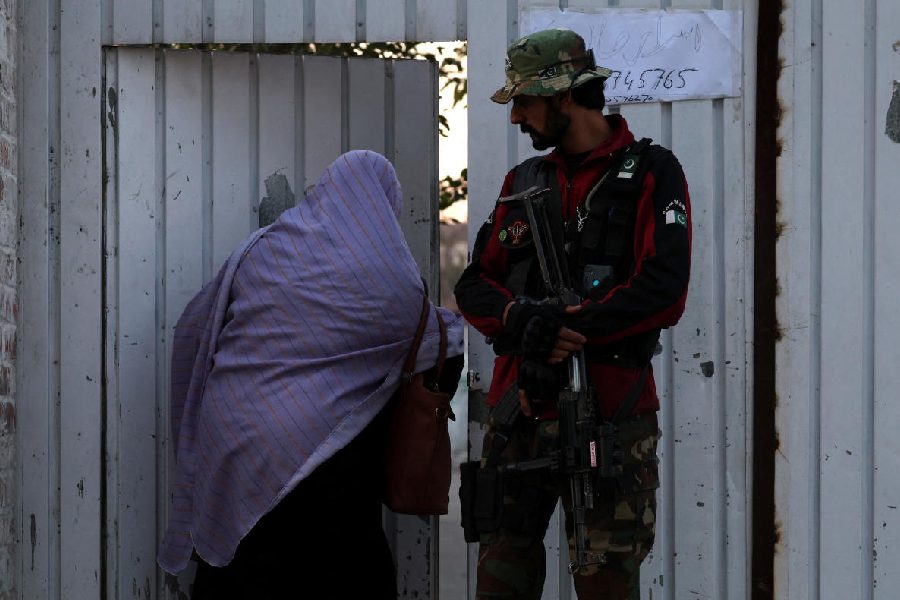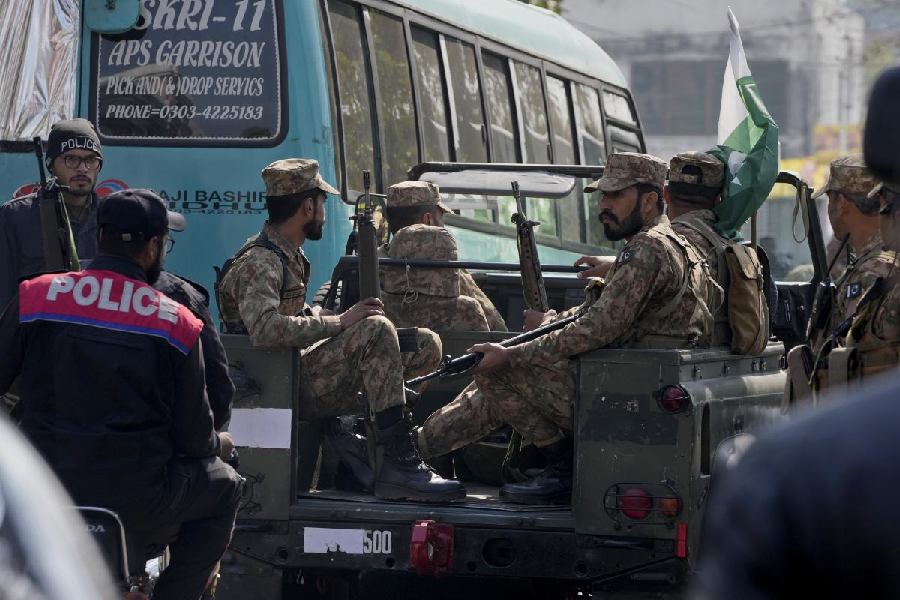Pakistan temporarily suspended mobile phone services on Thursday to strengthen security as voting began in the country's national election, the interior ministry said.
The government's decision comes amidst a rise in militant attacks in the run-up to the election and a day after jailed former Prime Minister Imran Khan urged his supporters to wait outside polling booths after voting until results are announced.
"As a result of the recent incidents of terrorism in the country precious lives have been lost, security measures are essential to maintain the law and order situation and deal with possible threats, hence the temporary suspension of mobile services across the country," the interior ministry said in a message on X.
Two blasts near election offices on Wednesday killed 26 people in the southwestern province of Balochistan.
Islamic State claimed responsibility for the blasts in a message on its Telegram channel. Several other groups, including the Islamist Pakistani Taliban (TTP) and separatist Baloch militants oppose the Pakistani state and have also carried out attacks in recent months.
The country is on high alert with tens of thousands of troops and paramilitary soldiers on duty across the country, including at polling stations. Pakistan also said it was closing its borders with Iran and Afghanistan for the day for security purposes.
Unofficial first results in the election are expected a few hours after voting closes at 5 p.m. (1200 GMT) and a clear picture is likely to emerge early on Friday.
The main contests are expected to be between candidates backed by Khan, whose Pakistan Tehreek-e-Insaf (PTI) party won the last national election, and the Pakistan Muslim League (PML-N) of three-time premier Nawaz Sharif, who is considered the front-runner.
Bilawal Bhutto Zardari, the 35-year-old son of former premier Benazir Bhutto, has also run an aggressive campaign in an outside bid for the top office.
Analysts say there may be no clear winner but Pakistan's powerful generals could play a role. Pakistan's military has dominated the nuclear-armed country either directly or indirectly in its 76 years of independence but for several years it has maintained it does not interfere in politics.
"The deciding factor is which side the powerful military and its security agencies are on," said Abbas Nasir, a columnist. "Only a huge turnout in favour of PTI can change its fortunes."
SWITCHED PLACES
Khan believes the military is behind a crackdown to hound his party out of existence, while analysts and opponents say Sharif is being backed by the generals.
The two former prime ministers have switched places since the last election in 2018: Khan was believed to be backed by the military then and Sharif was in jail on corruption charges.
"Historically, engineered electoral exercises have not produced stability," Nasir said, adding, "Economic challenges are so serious, grave, and the solutions so very painful that I am unsure how anyone who comes to power will steady the ship."
If the election does not result in a clear majority for anyone, as analysts are predicting, tackling multiple challenges will be tricky - foremost being seeking a new bailout programme from International Monetary Fund (IMF) after the current one expires in March.
Smaller political parties could play a crucial role in the formation of a government that will need 169 seats in the 336-member National Assembly. Voters directly elect 266 members while there are 70 reserved seats - 60 for women and 10 for non-Muslims - allotted according to the number of seats won by each party.
Independents, many of whom are being backed by Khan, are free to join any party if they win, which could swing fortunes after the vote. Khan has said his candidates will not back Sharif or Bhutto Zardari.












